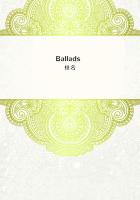Then once more the admirers of the two heroes, in an ecstasy at their wisdom, gave vent to another peal of laughter, while the rest of us were silent and amazed. Euthydemus, observing this, determined to persevere with the youth; and in order to heighten the effect went on asking another similar question, which might be compared to the double turn of an expert dancer. Do those, said he, who learn, learn what they know, or what they do not know?
Again Dionysodorus whispered to me: That, Socrates, is just another of the same sort.
Good heavens, I said; and your last question was so good!
Like all our other questions, Socrates, he replied--inevitable.
I see the reason, I said, why you are in such reputation among your disciples.
Meanwhile Cleinias had answered Euthydemus that those who learned learn what they do not know; and he put him through a series of questions the same as before.
Do you not know letters?
He assented.
All letters?
Yes.
But when the teacher dictates to you, does he not dictate letters?
To this also he assented.
Then if you know all letters, he dictates that which you know?
This again was admitted by him.
Then, said the other, you do not learn that which he dictates; but he only who does not know letters learns?
Nay, said Cleinias; but I do learn.
Then, said he, you learn what you know, if you know all the letters?
He admitted that.
Then, he said, you were wrong in your answer.
The word was hardly out of his mouth when Dionysodorus took up the argument, like a ball which he caught, and had another throw at the youth.
Cleinias, he said, Euthydemus is deceiving you. For tell me now, is not learning acquiring knowledge of that which one learns?
Cleinias assented.
And knowing is having knowledge at the time?
He agreed.
And not knowing is not having knowledge at the time?
He admitted that.
And are those who acquire those who have or have not a thing?
Those who have not.
And have you not admitted that those who do not know are of the number of those who have not?
He nodded assent.
Then those who learn are of the class of those who acquire, and not of those who have?
He agreed.
Then, Cleinias, he said, those who do not know learn, and not those who know.
Euthydemus was proceeding to give the youth a third fall; but I knew that he was in deep water, and therefore, as I wanted to give him a respite lest he should be disheartened, I said to him consolingly: You must not be surprised, Cleinias, at the singularity of their mode of speech: this Isay because you may not understand what the two strangers are doing with you; they are only initiating you after the manner of the Corybantes in the mysteries; and this answers to the enthronement, which, if you have ever been initiated, is, as you will know, accompanied by dancing and sport; and now they are just prancing and dancing about you, and will next proceed to initiate you; imagine then that you have gone through the first part of the sophistical ritual, which, as Prodicus says, begins with initiation into the correct use of terms. The two foreign gentlemen, perceiving that you did not know, wanted to explain to you that the word 'to learn' has two meanings, and is used, first, in the sense of acquiring knowledge of some matter of which you previously have no knowledge, and also, when you have the knowledge, in the sense of reviewing this matter, whether something done or spoken by the light of this newly-acquired knowledge; the latter is generally called 'knowing' rather than 'learning,' but the word 'learning'
is also used; and you did not see, as they explained to you, that the term is employed of two opposite sorts of men, of those who know, and of those who do not know. There was a similar trick in the second question, when they asked you whether men learn what they know or what they do not know.
These parts of learning are not serious, and therefore I say that the gentlemen are not serious, but are only playing with you. For if a man had all that sort of knowledge that ever was, he would not be at all the wiser;he would only be able to play with men, tripping them up and oversetting them with distinctions of words. He would be like a person who pulls away a stool from some one when he is about to sit down, and then laughs and makes merry at the sight of his friend overturned and laid on his back.
And you must regard all that has hitherto passed between you and them as merely play. But in what is to follow I am certain that they will exhibit to you their serious purpose, and keep their promise (I will show them how); for they promised to give me a sample of the hortatory philosophy, but I suppose that they wanted to have a game with you first. And now, Euthydemus and Dionysodorus, I think that we have had enough of this. Will you let me see you explaining to the young man how he is to apply himself to the study of virtue and wisdom? And I will first show you what Iconceive to be the nature of the task, and what sort of a discourse Idesire to hear; and if I do this in a very inartistic and ridiculous manner, do not laugh at me, for I only venture to improvise before you because I am eager to hear your wisdom: and I must therefore ask you and your disciples to refrain from laughing. And now, O son of Axiochus, let me put a question to you: Do not all men desire happiness? And yet, perhaps, this is one of those ridiculous questions which I am afraid to ask, and which ought not to be asked by a sensible man: for what human being is there who does not desire happiness?
There is no one, said Cleinias, who does not.
Well, then, I said, since we all of us desire happiness, how can we be happy?--that is the next question. Shall we not be happy if we have many good things? And this, perhaps, is even a more ****** question than the first, for there can be no doubt of the answer.
He assented.
And what things do we esteem good? No solemn sage is required to tell us this, which may be easily answered; for every one will say that wealth is a good.
Certainly, he said.
And are not health and beauty goods, and other personal gifts?
He agreed.















